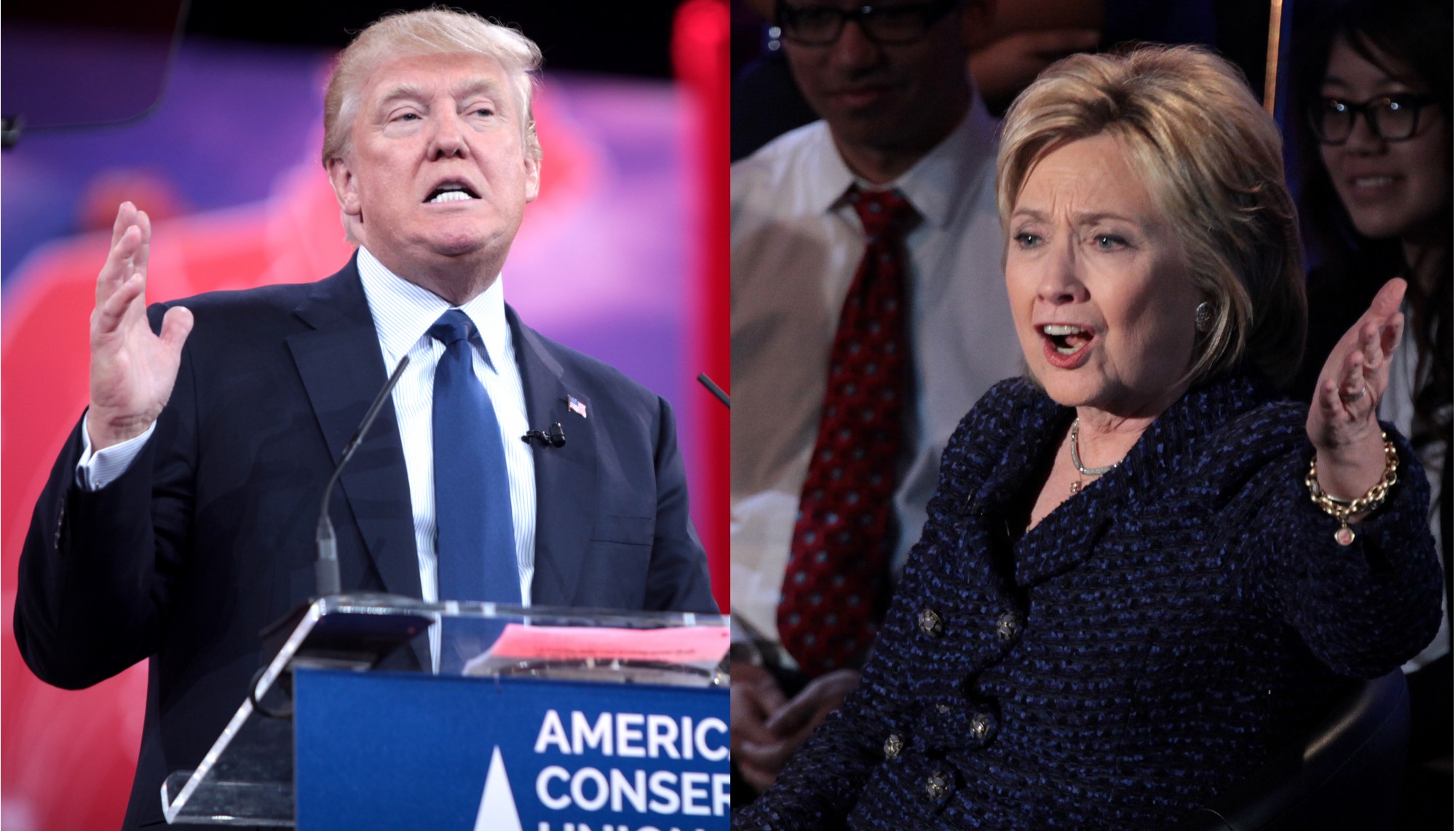A large percentage of voters who support Hillary Clinton or Donald Trump have something in common: They dislike the other candidate.
For 33 percent of Donald Trump supporters and 32 percent of Hillary Clinton supporters, their main reason for backing one of the candidates is because Trump is not Clinton or Clinton is not Trump, according to a Pew Research Center survey on voter attitudes released on Sept. 21.
For some politically active students at the University of Maryland, those findings ring true.
Jacob Veitch wrote in an email that from his experiences as College Republicans president at this university, many students are falling in line with the Republican Party “because of their disdain for Hillary Clinton,” as opposed to fully giving Trump their backing. Twenty-seven percent of Trump supporters said they are voting for him this November because he is a “political outsider” and “will bring change,” according to the polling data.
“Even one of our most vocal ‘Never Trump’ members has eased up since the primaries, opting to support Donald Trump to stop a Hillary Clinton presidency,” wrote Veitch, a junior government and politics and international business major. Veitch noted in an email that College Republicans is made up of “a wide ranging set of opinions, from those that support Donald Trump, to those that support a third party candidate, to even some that support Hillary Clinton.”
For students voting at this university for the first time, partisanship is an attitude that can take time to mature, government and politics professor Lilliana Mason said.
“As for new voters, we tend to say that you become partisan after voting for the same party in three consecutive presidential elections,” Mason said. “Students voting for the first time still have eight years to go before their partisan identities are firmed up.”
Despite the poll’s findings, Jake Polce, president of this university’s College Democrats, wrote in an email that many members are just as enthusiastic about voting for Clinton for her policies — not just because she isn’t Trump.
“The results of that poll don’t mirror the vast majority of conversations that I have had with members of our organization regarding why they are voting for [Clinton],” wrote Polce, a junior government and politics major. “As an organization we are supporting Hillary Clinton primarily based on the fundamental values that members of our club share with her.”
In addition to the 32 percent who said they are voting for Clinton because she isn’t Trump, another 32 percent of Clinton supporters responded saying they are backing her because she is “experienced/will get things done,” according to the survey.
Overall, the polling data revealed a trend of concern among the electorate, with 49 percent of all voters saying they would feel “disappointed” or “angry” if Clinton became president and another 59 percent of all voters sharing those feelings if Trump were to be elected.
These attitudes among voters can be bad news for turnout at the polls this November, Mason said.
“This sort of negative voting can reduce turnout by reducing enthusiasm,” he explained.
Clinton is leading Donald Trump 47.4 to 44.4 percent nationally, according to the Real Clear Politics polling average, which was updated on Sept. 28.



